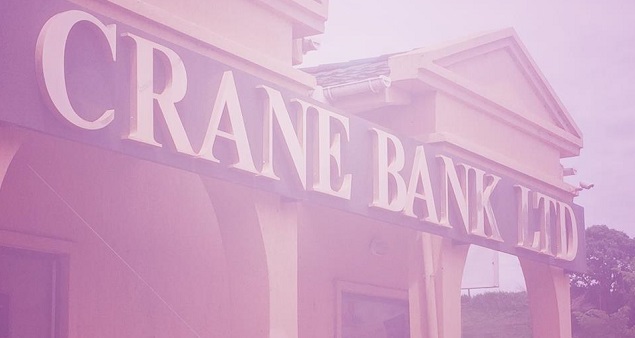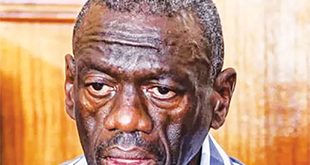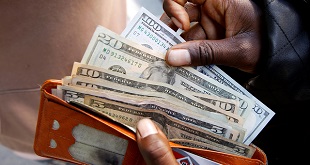
THE LAST WORD: By Andrew M. Mwenda
Lessons for Uganda from the failure of Crane Bank and what should be done going forward
Last week’s central bank takeover of Uganda’s third largest bank, Crane Bank, was another step in our nation’s march to the absolute mastery of our economy by international capital. Crane follows a long list of locally owned banks that have gone under or been swallowed by others over the last 20 years, beginning with the International Credit Bank, then Greenland Bank, the Cooperative Bank, Uganda Commercial Bank and recently National Bank of Commerce.
After the failure and closure of all these local banks between 1998 and 1999, Uganda’s banking industry has grown by leaps and bounds. In 1995, total deposits were Shs383 billion (or Shs1.327 trillion in 2015 prices). By December 2015 they had grown to Shs15 trillion. Bank profits have grown from Shs10 billion (or Shs34.65 billion in 2015 prices) to Shs529 billion over the same period. Bank assets have grown from Shs727 billion (or Shs2.5 trillion in 2015 prices) to Shs22 trillion between 1995 and 2015; bank accounts from 321,307 to 4,499,426.
These facts show a rapidly growing banking sector. They also demonstrate the competences that Bank of Uganda in regulating banks. Indeed, the executive director for bank supervision at BOU, Justine Bagyenda, is a no nonsense woman commonly referred to as “The Iron Lady” in commercial banking circles. On the face of it, this growth in size, scale and scope of the banking industry shows that Uganda’s banking industry has come of age. It also confirms why multi-national banks should be allowed to take over our banks and why local banks should be discouraged.
Yet in spite of this phenomenal growth, Uganda still has only about 5% of the population banked. Indeed, we have also seen rapid growth of private money lending by what we call “loan sharks”. This demonstrates that many Ugandans cannot get loans from banks. Banks in Uganda are not designed to serve most Ugandans but a small elite class in towns, the NGO and donor sector and a few business and even here within narrowly defined parameters.
I admire BOU’s strict regulation of the banking sector that has protected depositors from greedy bankers and reckless borrowers. However, I am now aware that these short-term gains are outweighed by the costs our current banking laws impose on the economic transformation of our country in the long-term. Multinational banks tend to rely on rules set by their parent companies in Johannesburg, London, New York, etc. that are inherently skeptical about the credit worthiness of Africans. Thus, businesses and individuals in Uganda find it hard to get credit from them.
BOU and government may deny the current economic downturn. But that is like burying one’s head in the sand.
Crane Bank succeeded because its owner, Sudhir Ruparelia, built his business from the bottom up on the streets of Kampala. He acquired a good social network with local businesspersons and excellent intuition and knowledge of their workings. This newspaper is a living testimony of Crane Bank’s role in the growth of local businesses. When we set up The Independent in December 2007, our company broke-even in the first five months. However, because we were small and new, many of our suppliers insisted we pay them in advance. Yet our customers, especially advertisers, were large and reputed corporations that insisted on 45 to 60 days credit; some even took 90 days to pay us. Hence although we were profitable, we had cash-flow shortages.
We tried to get a line of credit from Barclays and Standard Chartered banks in vain even though we had accounts with them. Crane Bank gave us an overdraft without demanding collateral (which we did not have) because they knew their customers personally. This allowed us to remain in business, grow and become a major employer, taxpayer and exporter. How many potentially great businesses have died due to lack of access to credit?
BOU and government may deny the current economic downturn. But that is like burying one’s head in the sand. In 2013 BOU increased the Central Bank Lending (CBR) from 12% to 23% in circumstances where 98.3% of all loans were on variable interest rate. Commercial banks reacted by increasing their prime lending rates from 17% to 33%. Many loans began to fail.
In 2014, Stanbic Bank wrote off Shs 175 billion. In 2015, Standard Chartered Bank wrote off Shs 165 billion. Crane Bank wrote off Shs 115 billion. Many other banks had big write-offs as well. Only four out of 25 banks grew their profitability in 2015. Since April, BOU had asked several banks to recapitalise. Today, many banks are under stress due to nonperforming loans. Of course the likes of Stanbic and Stanchat can afford big write-offs and recapitalise. Crane, owned by a local business tycoon with limited financial power could not.
Yet Crane Bank gave Uganda more value. Sudhir is heavily invested in Uganda – in real estate, import and export trade, warehousing, hotels, schools, a university, a flower export business, etc. Stanbic and Stanchart do not invest in the country; they repatriate all their profits. They don’t even own the offices in which they are headquartered. If they failed they would just pack their bags and go. Surely if these are not mercenary banks, what are they?
BOU is doing an excellent job in enforcing existing rules. But these rules are meant for rich countries. Look at the world’s fastest growing economy, China; or Africa’s fastest growing economy, Ethiopia: over 90% of the banking sector is owned locally and largely by the state. South Korea in the 1960s to early 1990s, or Western Europe and North America during their transition from agrarian to industrial societies had banking rules and practices similar to those of China or Ethiopia today. Lesson: what you need to grow from poverty is different from what you need once you are rich.
The takeover of Crane provides the Uganda government with an opportunity to reenter commercial banking. Crane needs Shs500 billion in liquidity. I suggest government raises it and takes a majority stake in the bank. It should run it on private sector principles and make borrowing accessible to Ugandans by maintaining the quality of service that Crane Bank gave its customers.
For Uganda to transform from a backward to an advanced nation, it must be willing to take big risks. One such risk is to believe that our people can borrow, grow their businesses and pay back. They must be be given credit without the absurd requirements that characterize our banks today. Without such risks, we shall continue to replicate, but we shall never transform, the structures of our economy.
****
amwenda@independent.co.ug
 The Independent Uganda: You get the Truth we Pay the Price
The Independent Uganda: You get the Truth we Pay the Price



I think it is time to once again have a national discussion on an economic bailout to distressed companies that are keeping this economy afloat. The last time round it was handed as a political bailout and irked the population. What we need is a structured economic realignment with Govt of Uganda acquiring stakes in struggling companies. The PPP law provides the framework to do so.
BOU must continue ‘to act in the interests of depositors’ and stakeholders by listing all the companies that are integral to our economy, especially the likes of Crane Bank and other corporations that are heavily invested in Uganda and Ugandans. This list should be the basis of a comprehensive discussion by the representatives of the people, with a view to organising a well structure economic bailout.
One thing is certain, this economy is on a downward trajectory and the bottom of the pit is disastrous for the socio-political set-up. We can as a nation engage in frantic political attempts to pretend all is well or we can as a nation diagnose and get a remedy for the entire economy. The former is easy and will be disproved in shortest term as ‘Kisanja Hakuna Mchezo’ quickly morphs into the biggest Mchezo yet, while the latter requires bare knuckled leadership that will turn a near catastrophe into a budding opportunity to restructure the economy.
What is clear and true is that Uganda and Ugandans need a greater economic stake in the economy. We can do that systematically or let the vulgarises of upheaval do that for us.
1. I now believe that BOU knew about all the deals of Crane Bank but had to let the cat out of the bag coz; (i) BOU approves & monitors all Bank operations(ii)They carry out extensive information about senior management of a Bank(iii)Among the guidelines for opening up a Bank,they are required to provide a plan for eventualities like unexpected losses & risks so this raises the big qn was BOU so afraid of Crane Bank?
2.Who is Rasik Kantaria the alleged biggest share holder of Crane Bank? How come no one every saw nor heard about him even during the opening ceremonies of Bank Branches he was never seen yet he lives just next door in Kenya.
3.Rasik Kantaria is among the Top mangers of Prime Bank Kenya wouldn’t it have made more sense for him to open up a Prime Bank Branch in Ug than open a new Bank in the name of Crane Bank?
4The Banking sector in Ug is currently over crowded they will close shop coz(i) .They charge high interest rates(ii)They are few clients thats why they like targeting salaried workers coz its simpler to make deductions in case they apply for loans.(iv)Collateral security like Houses are so risky coz the vaule of a property at the time of applying for loan may not be the same when you want to sell it e.g incase a client defaults on loan payments,Banks auction property trust me most of these properties go at a cheap price.(v) Mobile money is now a threat to Banks.(vi)Saving Schemes are sorting out the locals you find Rajab applying for a loan from women saving schemes even if he is not a woman(vii) There is alot of paper work required while opening & withdrawing money and the illiterate fear such things thats why Musinguzi can fill a withdrawal slip 10 times coz he enters the Bank when he has crammed his date of birth & thinks its required on the withdraw form.
5. Its advisable to have hot cash in your accounts even if you are in a fix you can be able to sort out a few things instantly i dont believe in investing so much in property i prefer investing in T.Bills & Bonds which are risk free even if Govt is overthrown my interest is guaranteed. now imagine property could not help Sudhir’s Bank.